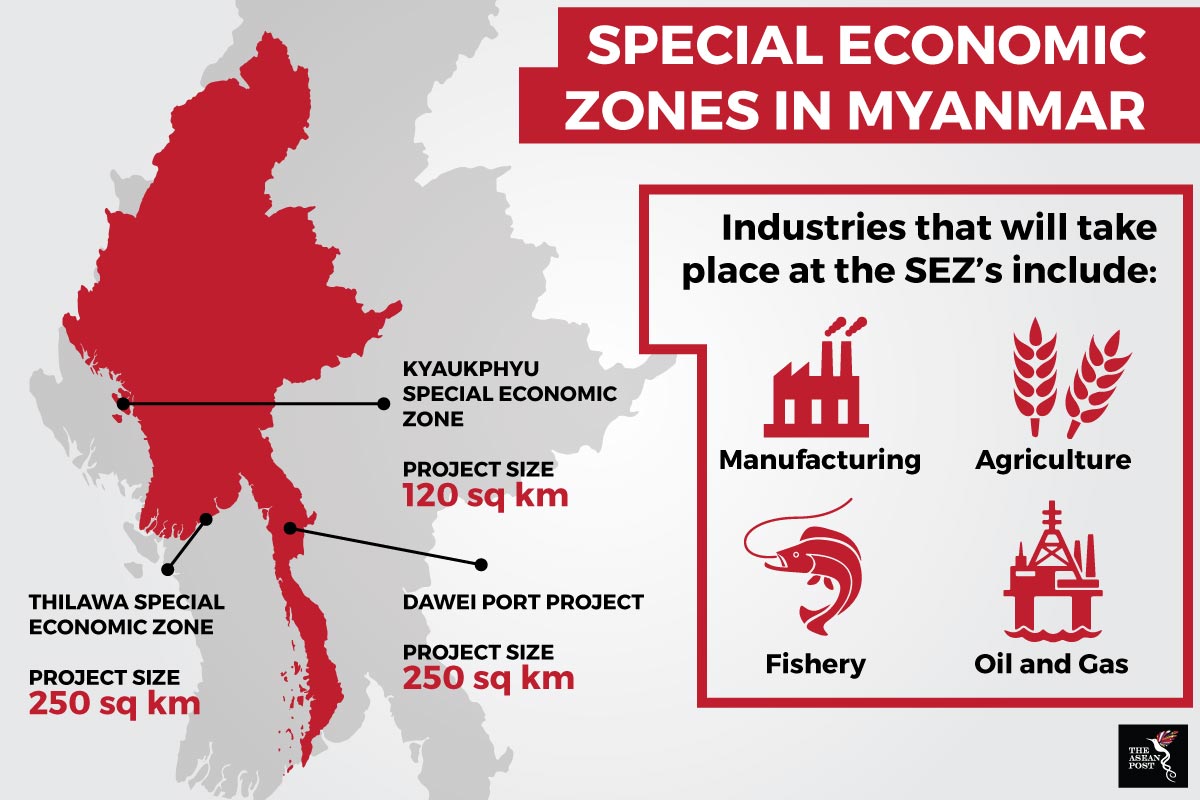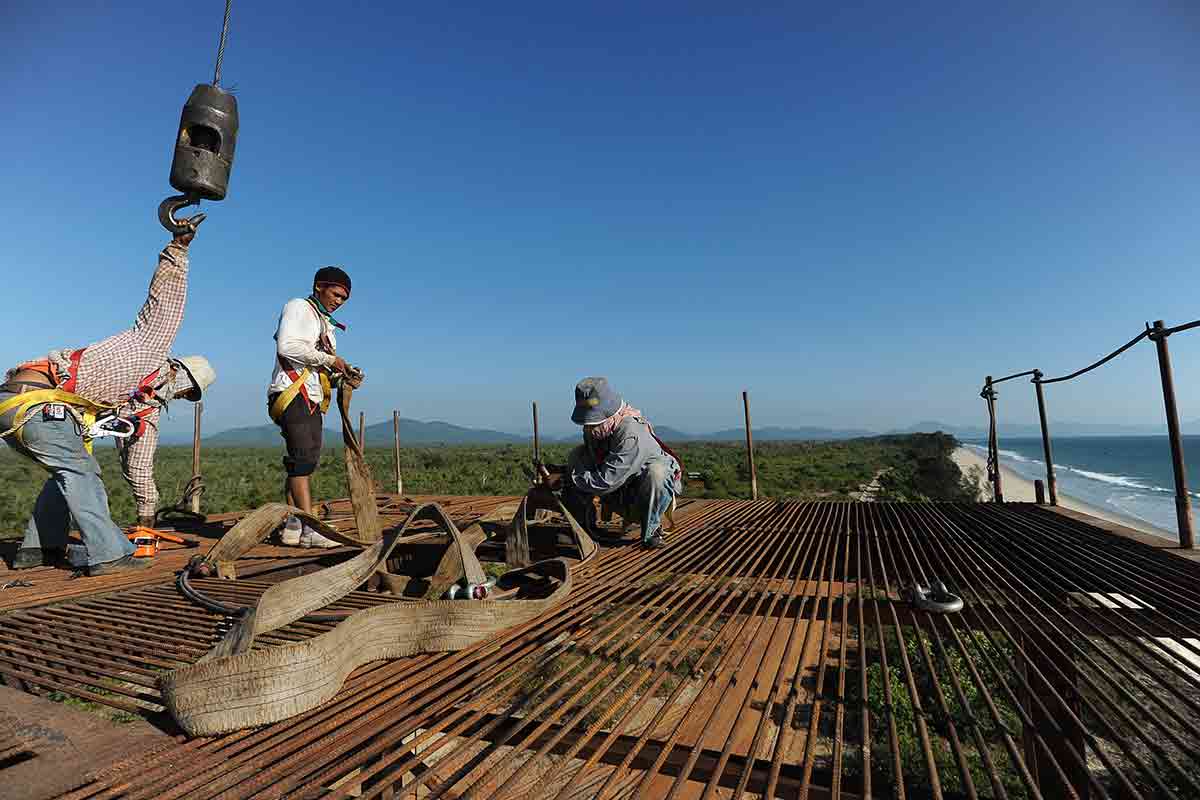Ever since the National League for Democracy (NLD) was elected to government at the end of 2015, Myanmar’s economy has been opening up and quietly growing steadily.
In an effort to open up its economy, the government in Myanmar has taken various steps in making the country more attractive to investors. Last year, Myanmar enacted an investment law that simplifies the investment process and allows the government to use incentives to bring in investors to various sectors of the economy.
For Myanmar, foreign direct investments (FDI) play a major role in developing the economy. In 2016 to early 2017, Myanmar received about US$6 billion in FDIs. However, foreign investment for the past couple of years has dipped.
To help boost FDI in the country, Myanmar enacted the Special Economic Zone (SEZ) law to pave the way for SEZs to be established in the country. The three SEZs which are currently under development are Thilawa, Dawei and Kyaukphyu.
The Thilawa SEZ, located 25 kilometres south of Yangon, is Myanmar’s first modern industrial park. To date, only the Thilawa SEZ is open, with the rest still under development. The opening of Thilawa has been a success with total FDI in Zone A of the SEZ reaching up to US$1 billion with 95 percent occupancy. 79 firms have also decided to open up their factories or logistics hubs in this SEZ.
 Source: Various sources
Source: Various sources
Not so promising
However, the prospects of the other two SEZs do not look too bright. The Kyaukphyu SEZ is located in the Rakhine State and it will focus more on oil and gas projects as the Shwe gas field in the Bay of Bengal is easily accessible from it. The project is said to involve a port and a pipeline that pumps oil 770 kilometres across Myanmar to southwest China. The pipeline will be a vital part of Beijing’s Belt and Road Initiative (BRI).
The development of this port has received wide criticism. The project was slated to be developed with Chinese conglomerate CITIC which has a 70 percent stake in the SEZ with the rest belonging to Myanmar. The initial US$7.3 billion price tag for the port has raised fears that the project could lead Myanmar into a debt-trap, similar to what Sri Lanka is experiencing. Even Sean Turnell, one of Aung San Suu Kyi’s key advisors has called the cost of the project “crazy” and “absurd”.
Fearing the project could leave the country heavily indebted, the Myanmar government has renegotiated the price of the port to around US$1.3 billion. However, the lower cost comes at a price as the port will now have fewer facilities. In an interview, Aung San Suu Kyi said that the original plan to develop 10 berths at the 25-metre deep sea port to accommodate bigger oil tankers will now be revised to just two berths. With plans for the port being scaled down, revenue could also be less than first projected.
Delays and disruptions
The future of the Dawei SEZ is also in doubt. It is yet to be completed and has been delayed by various disruptions. When completed, the Dawei SEZ would be the largest industrial zone in the region. The project was initially planned to be developed by Thailand and Myanmar but has since seen companies coming in and then pulling out of it. Local reports show that Japan is now leading the development of Dawei but has yet to carry out a site wide assessment. Experts are saying that without a site wide assessment, any implementation of plans by the Japanese would be considered illegal.
In addition to that, the development of Dawei has also been mired in controversy. A report from the Tavoyan Women’s Union revealed that the development would cause a loss in income and an increase in food insecurity for the area. Other non-governmental organisations (NGOs) have echoed similar sentiments.
“Unless vast improvements are made, people and nature in this area stand to lose far more than what will be gained from the SEZ and related projects,” said Christy Williams, country director of WWF-Myanmar.
The establishment of this SEZ was done in order to build Myanmar’s economy but questions are being asked about the project’s effectiveness. In the long run, it could possibly do more harm than good for the country’s economy.
